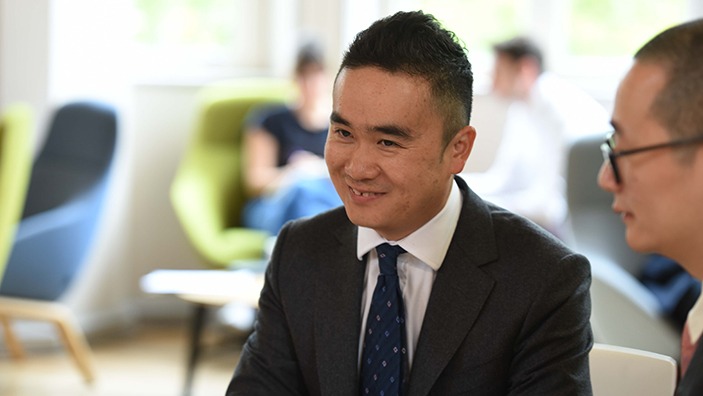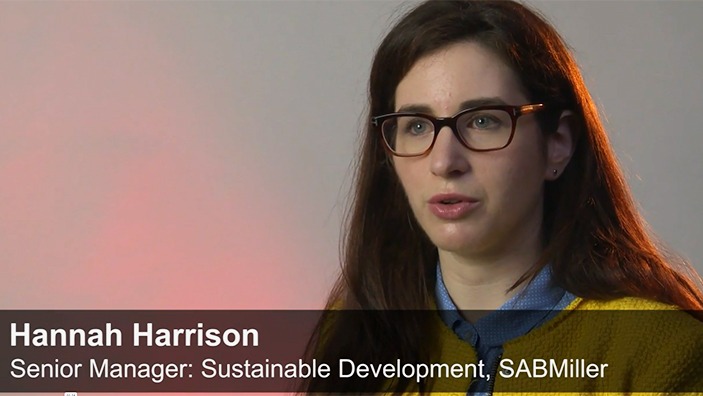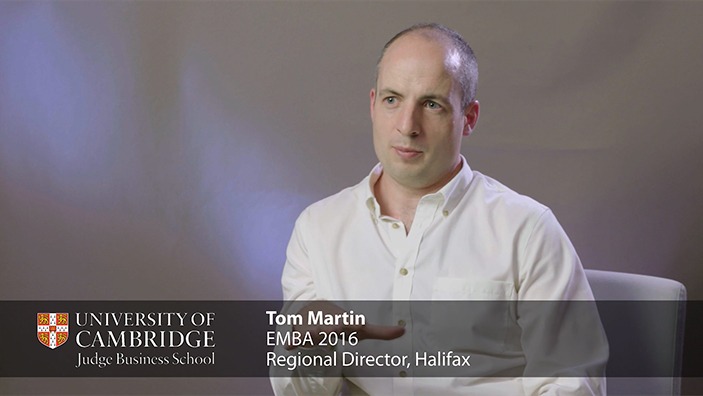Expand your self-awareness and develop your business skills
The Executive MBA’s Personal and Professional Development course gives participants regular opportunities to expand their self-awareness and develop their business skills.
This course is about becoming more self-aware; more aware of the habitual ways of seeing, thinking and behaving and the impact of our behaviour on others.
It is important that professionals in a senior management or leadership role understand the impact of their behaviour on others, from employees to board members.

The programme helped me to rethink the concept of career progression. I’ve been encouraged to think not what job I want in 10 years’ time, but what life I want instead.
The course is delivered as a series of workshops from visiting practitioners; subjects vary from year to year. Workshops undertaken by past cohorts include:
- Speech drafting and writing
- Business writing
- Presenting at senior level
- Consultative selling
- Networking
- Media skills
- Coaching as a leader
Participants will choose to focus on 2 of these areas that are of most importance to them.
Executive coaching
Cambridge Judge Business School believes executive coaching has a positive, evidenced effect on organisational success and individual performance.
The EMBA executive coaching programme has been designed to offer participants an opportunity to develop their performance and behaviour. It encourages them to draw out ideas, inspiration and unifying principles in a reflective manner.
It can help participants make the most of their individual performance in a business context, where they are now and where they want to be in the future. All students receive 6 sessions of individual executive coaching.
Hear how previous EMBA participants benefited from the programme

Senior Manager at SABMiller, Hannah Harrison, describes how the development of soft skills help participants become more effective at work.
I think the Cambridge EMBA has an unusually high focus on what people would call softer skills. So we spend a lot of time thinking about how people interact, how you can interact more effectively with people and understand other people’s motivations, different personalities, how you can manage those. Which I think is very helpful when you’re trying to understand how to have a better, a bigger impact at work.
I think it’s something that’s helpful for men and women. But that focus has been very interesting, I think, for lots of us, very provocative. It’s very challenging when you start taking a step back and thinking about your own behaviour, your own impact on people. They’re quite hard topics but very worthwhile. And I think a lot of us have found that it’s started to change the way we interact with people in the workplace.

Tom Martin (EMBA 2016) explains how the programme influenced his communication approach at work.
So just to share a story about how what you learn at the weekend can be applied in the workplace very, very quickly. So I think this one was a Saturday. And I was speaking at a conference on Wednesday. And we were making some quite significant announcements around impacts on the retail branch network that I run. And these are fundamental. So these are around the changing shape of our branch network. And I have to talk to a room of people about the changes that we’re making. And on the Saturday, we were having a lecture around organisational behaviour and how to really build a case for change, how to talk about it, how to help people understand it.
And the key thing I took away was, don’t just talk about what you’re doing. Don’t just talk about how you’re making that change. But fundamentally, talk about why you’re doing this change, why it’s so important, so people don’t just understand the technicalities but really believe in it.
And this was a lecture we had on the Saturday. And it fundamentally changed the way I was talking on the Wednesday. And to be honest, not just on that Wednesday, how I’ve talked about since, how I’ve communicated, how I’ve told stories to the team about why we’re doing this, and things that can connect with people from cashiers on the till to our banking consultants and interviewing customers, right through some of the other senior directors in the business.
Cambridge Judge Business School careers support
As a student at Cambridge Judge, the Careers Team will help you with applications, interviews, negotiating offers and can act as a sounding board for your careers planning.
During your Executive MBA you can book meetings with members of the Careers Team where they can look at career advancement and transition with you, as well as talk about any entrepreneurial ambitions you might have.
As a student, you will have access to the Business School’s online careers system where you can sign up for careers events, search a database of employers and job listings, set up specific alerts for jobs and events relating to your interests, and create profiles for prospective employers. You can even make use of the service once you become a graduate.








